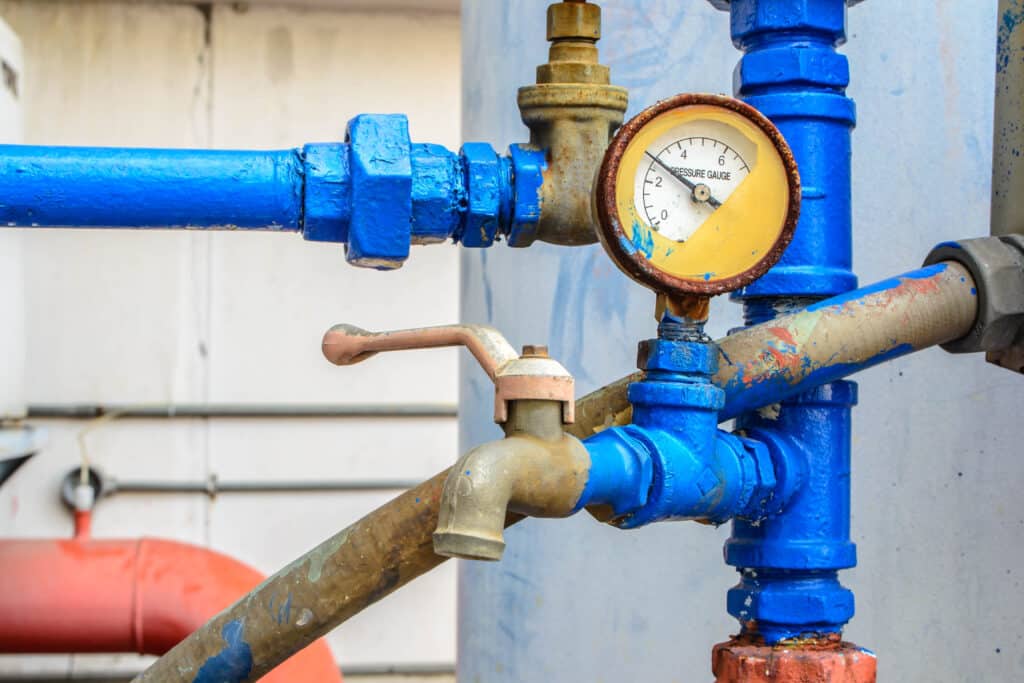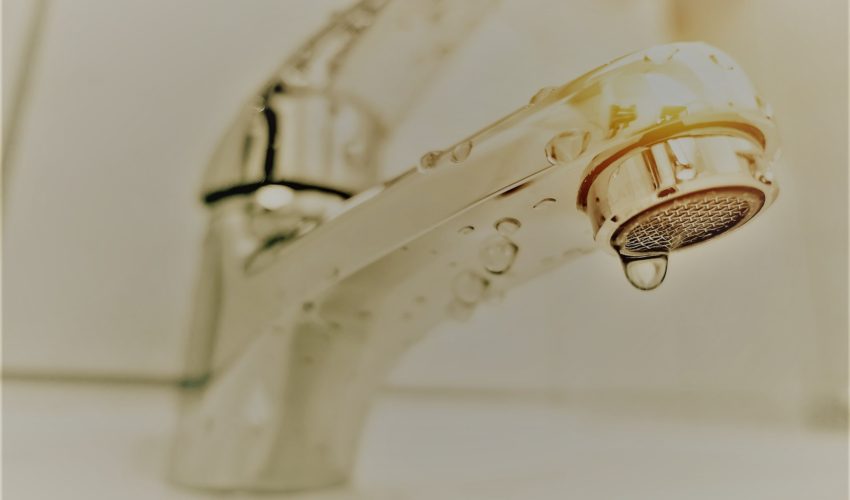Highly-Rated Strategies for Managing Low Water Pressure in Your Home
Highly-Rated Strategies for Managing Low Water Pressure in Your Home
Blog Article
This great article which follows in relation to Dealing with Low Water Pressure in Your Home is seriously engaging. Try it and make your own personal conclusions.

Low water stress in your home can be an aggravating issue, affecting whatever from showering to cleaning meals. If you're experiencing weak water flow, there are a number of feasible reasons and services to explore. In this guide, we'll review usual reasons for low water pressure and sensible actions to deal with the concern effectively.
Intro to Low Tide Pressure
Low water stress occurs when the flow of water from your faucets, showers, and other fixtures is weak than typical. This can make everyday tasks extra tough and less reliable. Understanding the causes of low tide stress is essential to locating the ideal option.
Common Root Causes Of Low Tide Pressure
Faulty Pressure Regulatory Authorities
Pressure regulators are in charge of keeping constant water pressure in your home. If they malfunction, it can cause low water stress or uneven flow throughout your house.
Metropolitan Water Issues
Sometimes, the trouble exists outside your home. Local water concerns, such as main line leakages or upkeep work, can momentarily reduce water pressure in your location.
Pipeline Obstructions
Gradually, pipelines can end up being obstructed with natural resource, sediment, or debris, restricting the flow of water. This is an usual problem in older homes with galvanized steel pipelines.
Deterioration
Corrosion within pipelines can result in leaks and reduced water stress. Corrosion buildup can restrict water circulation, particularly in aging plumbing systems.
Just How to Identify Low Water Pressure
Inspecting Pipes
Check visible pipes for indications of leakages, deterioration, or obstructions. Take note of any kind of uncommon sounds, such as banging or rattling pipelines, which can indicate problems within the plumbing system.
Consulting with a Plumber
If you're not able to determine the reason for low water stress, take into consideration employing a specialist plumber to perform an extensive assessment. They can identify underlying problems and suggest proper options.
Inspecting Faucets and Fixtures
Beginning by examining the water stress at various faucets and fixtures throughout your home. If the problem is isolated to specific locations, it might indicate localized problems.
Do It Yourself Solutions to Fix Low Tide Stress
Flushing Hot Water Heater
Sediment buildup in the water heater can limit circulation and lower performance. Flushing the container periodically assists get rid of debris and maintain optimum efficiency.
Examining Pressure Regulatory Authority
Guarantee that the stress regulatory authority is working appropriately. Adjusting or replacing the regulatory authority can aid restore appropriate water pressure throughout your home.
Cleaning Up Aerators and Showerheads
Natural resources can accumulate in aerators and showerheads, decreasing water flow. Eliminate and clean up these parts on a regular basis to boost water stress.
Clearing Up Clogs in Piping
For small obstructions, try making use of a plumbing serpent or chemical drainpipe cleaner to clear obstructions in pipelines. Beware when making use of chemicals and adhere to security guidelines.
When to Call an Expert Plumber
If do it yourself initiatives fail to deal with the problem or if you think significant plumbing problems, it's ideal to look for help from a licensed plumber. They have the experience and tools to attend to complicated concerns safely and efficiently.
Preventive Measures to Preserve Water Stress
Mounting a Pressure Booster
Take into consideration mounting a pressure booster pump to boost water pressure in areas with continually low flow. This can be specifically beneficial for multi-story homes or buildings with high-demand components.
Surveillance Water Use
Bear in mind water usage routines and prevent overtaxing the plumbing system. Easy changes, such as staggering showers and washing lots, can assist maintain appropriate water pressure.
Regular Upkeep
Arrange regular upkeep for your plumbing system to avoid issues such as deterioration, leaks, and blockages. Dealing with small issues early can aid avoid more significant repair services later on.
Final thought
Handling low tide pressure can be discouraging, but identifying the underlying causes and applying appropriate remedies can restore optimum flow throughout your home. Whether it's cleansing aerators, inspecting pipes, or speaking with a plumber, taking aggressive actions can make certain a steady supply of water for your day-to-day needs.
HOW TO FIX LOW WATER PRESSURE IN YOUR HOUSE
When your plumbing system functions properly, you likely never think about the water pressure coming from your faucets, shower heads, or other water fixtures. If you experience low water pressure in your house, though, it can quickly cause problems for cooking, cleaning, bathing, and laundry. Learning how to fix low water pressure in your house can help you avoid frustrating situations and worsening plumbing issues.
When investigating why your home has low water pressure, call the plumbing professionals at Hutchinson to inspect your system, identify the problem, and perform necessary repairs. Our highly-trained plumbing system experts utilize the best tools and techniques available to resolve issues with your home’s plumbing system. Call today to schedule a service with our experts and resolve the low water pressure in your home.
Common Causes of Low Water Pressure
While learning about how to fix low water pressure in your house, it’s essential to understand the various causes of this issue. From plumbing system failures to issues with your water fixtures, there are many reasons for low water pressure in a home. The most common causes of low water pressure include:
Pipe corrosion: If you live in an old house, your pipes could be much older than you realize. Over time, most pipes corrode, especially those made from galvanized steel. Corrosion creates small holes in your pipes that allow water to leak as it travels to your fixtures, leading to low water pressure. Hard water: Hard water forms when water retains a certain concentration of mineral and sediment buildup. Hard water can exacerbate corrosion and reduce water pressure. Hard water remains one of the main culprits of clogged pipes. Clogged pipes: When a pipe blockage clogs your system, it restricts water flow. That’s why clogged pipes are a leading cause of low water pressure. Faulty fixtures: Components within individual water fixtures can experience isolated clogging and rusting that cause low water pressure. If you notice only low shower pressure or limited faucet flow, inspect your system for faulty fixtures displaying rusting, clogging, and other damage. Water line leaks: Your water supply usually comes from a community source connected to your home through a water line. Any leaking in this water line will reduce water pressure before it enters your home. If you share a water line with neighbors, they might also notice low water pressure due to this problem. Broken pressure regulator: The pressure regulator ensures the water flowing throughout your home remains at a psi of about 50. Damage or breakdown of this crucial component will reduce water pressure throughout your property. Closed valve: The water valve supplying your home must be fully open to enable proper water pressure. A partially closed valve will yield low water pressure and cause issues. 5 Ways to Fix Low Water Pressure
Check for Leaks
Depending on their severity, leaks are usually easy to identify as the cause of your low water pressure. Whether your basement floods overnight or you notice mold growth on surfaces near your pipes, leaks usually present noticeable symptoms. In most cases, you’ll need to call professionals to replace sections of damaged piping or seal water line leaks.
Clear Clogged Pipes and Drains
Clogs can occur in any part of your system at any time. In most cases, it’s difficult to resolve clogged pipes and drains without professional equipment and experience.
Hutchinson experts can perform a comprehensive plumbing system inspection to identify the clog’s source and remove obstructions from your pipes. With the help of advanced equipment, we can restore your home’s normal water flow and pressure.
Replace the Pressure Regulator
After identifying a faulty pressure regulator as the cause of your low water pressure, there’s nothing to do but replace the mechanism. Homeowners should never conduct their own replacement.
Attempting to replace a crucial component like your pressure regulator that attaches to your overall plumbing framework could cause unnecessary damage and worsen the situation. Instead, rely on professionals to replace your pressure regulator properly.
Repair or Replace Broken Faucets and Fixtures
If you notice water pressure issues in an individual faucet or fixture, you can solve the problem quickly. Depending on the type and location of the fixture, you can likely replace it yourself.
For homes with custom fixtures, you might need to special order new parts. In these cases, opting for professional replacements helps you avoid any mishaps that could leave your water feature dysfunctional for longer.
Install a Pressure Booster
Water pressure problems impacting your neighborhood or community at large might require more overarching solutions. If your neighbors experience low water pressure as well, you might need to integrate a pressure booster into your water supply line.
Pressure boosters upgrade the water pressure starting at the source. These mechanisms can provide water pressure benefits to any homes on the same supply line. Call Hutchinson today to install a pressure booster on your water supply line.
Call Hutchinson to Fix All Your Plumbing Issues
Low water pressure is just one of many plumbing problems that reduce home comfort and cause system issues. The top-rated professionals at Hutchinson offer comprehensive plumbing services, including system inspections, maintenance, and repairs.
https://www.hutchbiz.com/blog/2024/01/15/how-to-fix-low-water-pressure-in-house/

Hopefully you enjoyed our excerpt about Dealing with Low Water Pressure in Your Home. Thanks a lot for taking time to read through our article post. Please take the opportunity to promote this article if you enjoyed reading it. Thank you for taking the time to read it.
Call Today Report this page